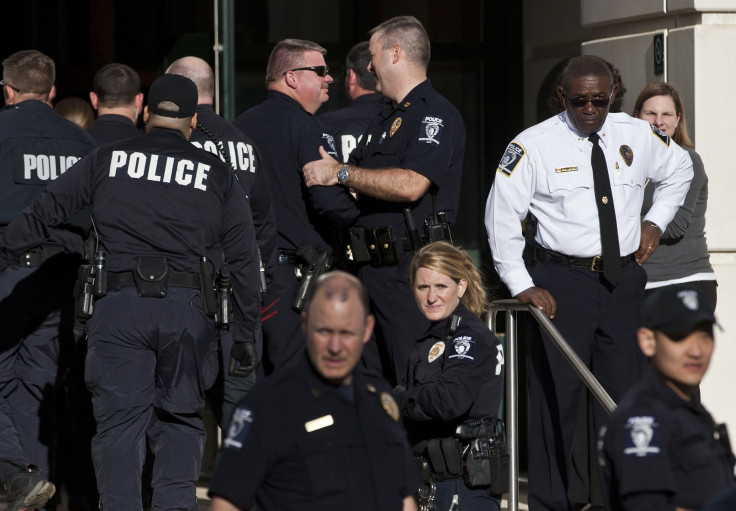The New Jim Crow North Carolina? Charlotte City Council, Police Consider Banning Arrestees From 'Public Safety Zones'

A proposed city ordinance in Charlotte, North Carolina, that seeks to ban people with certain arrest records from entering “public safety zones” is not exactly the return of Jim Crow segregation in the South. But if approved, the so-called crime reduction tool would likely have a disproportionate impact on African-American, as has been proved in other U.S. cities that tried it.
The Charlotte-Mecklenburg Police Department and Charlotte City Council this week discussed prohibiting people arrested for drug and gun offenses committed on public property from entering yet-to-be designated zones. For someone who had been arrested for such crimes within the zone, re-entering the area would be a misdemeanor offense as long as the safety zone were in effect, the Charlotte Observer newspaper reported.
Although arrestees would be able to appeal the ban for reasons such as going to work or picking up a child from school, some city officials are concerned that it could unfairly brand neighborhoods that received safety zone designation. “Truthfully, I don’t know if they will do any good,” Councilwoman Claire Fallon said, according to the Observer. “If someone doesn’t obey the law, do you think a safety zone will impress them?”
But that wasn’t the concern of former Portland, Oregon, Mayor Tom Potter, who led a push to end the city’s 1992 exclusion zone ordinance in 2007. The zones merely moved criminal activity to new areas and disproportionately excluded African-Americans from the police-zoned areas, Potter has said.
The safety zone plan emerged amid a 2015 violent-crime and homicide spike in Charlotte, a city with 809,958 residents that is 45 percent white, 35 percent black, 13 percent Latino and 5 percent Asian, according to the U.S. Census. A nationwide trend of disproportionate policing against minorities has been the subject of recent protests by social justice activists, including the Black Lives Matter movement.
Since the 1990s, U.S. police have arrested black Americans for drug crimes at twice the rate of whites, according to data kept by the Federal Bureau of Investigation. That’s despite the fact that whites use and sell drugs at rates comparable to or even higher than blacks.
North Carolina was the first state in the nation to begin tracking arrests by race and ethnicity, after the FBI required police departments to keep the data in 1999, according to the American Civil Liberties Union. In 2013, researchers found that black North Carolinians were three times as likely to be arrested after a stop for a seat belt violation, while whites were more often issued a citation or let off with a warning.
© Copyright IBTimes 2024. All rights reserved.






















